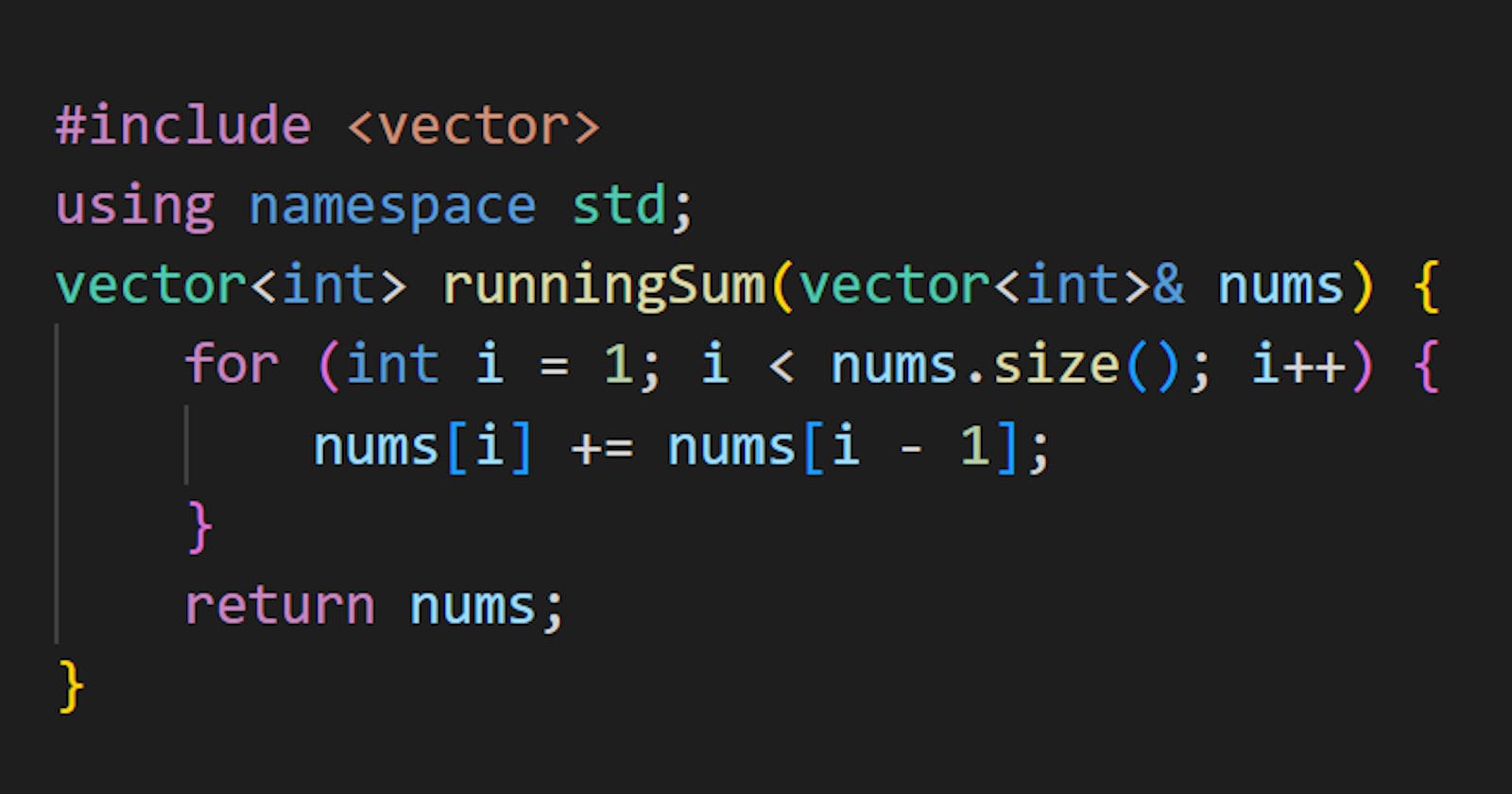Problem statement
Given an array nums. We define a running sum of an array as runningSum[i] = sum(nums[0]…nums[i]).
Return the running sum of nums.
Example 1
Input: nums = [1,2,3,4]
Output: [1,3,6,10]
Explanation: Running sum is obtained as follows: [1, 1+2, 1+2+3, 1+2+3+4].
Example 2
Input: nums = [1,1,1,1,1]
Output: [1,2,3,4,5]
Explanation: Running sum is obtained as follows: [1, 1+1, 1+1+1, 1+1+1+1, 1+1+1+1+1].
Example 3
Input: nums = [3,1,2,10,1]
Output: [3,4,6,16,17]
Constraints
1 <= nums.length <= 1000.-10^6 <= nums[i] <= 10^6.
Solution 1: Unchange nums
Code
#include <vector>
#include <iostream>
using namespace std;
vector<int> runningSum(vector<int>& nums) {
vector<int> rs;
int s = 0;
for (int n : nums) {
s += n;
rs.push_back(s);
}
return rs;
}
void printResult(vector<int>& sums) {
cout << "[";
for (int s: sums) {
cout << s << ",";
}
cout << "]\n";
}
int main() {
vector<int> nums{1,2,3,4};
auto rs = runningSum(nums);
printResult(rs);
nums = {1,1,1,1,1};
rs = runningSum(nums);
printResult(rs);
nums = {3,1,2,10,1};
rs = runningSum(nums);
printResult(rs);
}
Output:
[1,3,6,10,]
[1,2,3,4,5,]
[3,4,6,16,17,]
Complexity
Runtime:
O(N), whereN = nums.length.Extra space:
O(1).
Solution 2: Change nums
If nums is allowed to be changed, you could use it to store the result directly.
Code
#include <vector>
#include <iostream>
using namespace std;
vector<int> runningSum(vector<int>& nums) {
for (int i = 1; i < nums.size(); i++) {
nums[i] += nums[i - 1];
}
return nums;
}
void printResult(vector<int>& sums) {
cout << "[";
for (int s: sums) {
cout << s << ",";
}
cout << "]\n";
}
int main() {
vector<int> nums{1,2,3,4};
auto rs = runningSum(nums);
printResult(rs);
nums = {1,1,1,1,1};
rs = runningSum(nums);
printResult(rs);
nums = {3,1,2,10,1};
rs = runningSum(nums);
printResult(rs);
}
Output:
[1,3,6,10,]
[1,2,3,4,5,]
[3,4,6,16,17,]
Complexity
Runtime:
O(N), whereN = nums.length.Extra space:
O(1).

